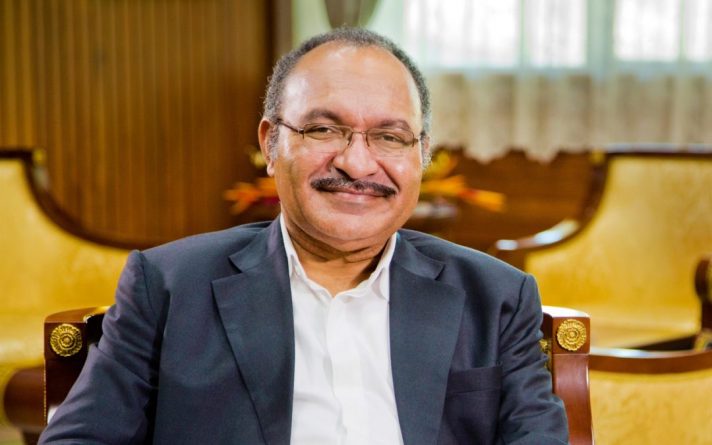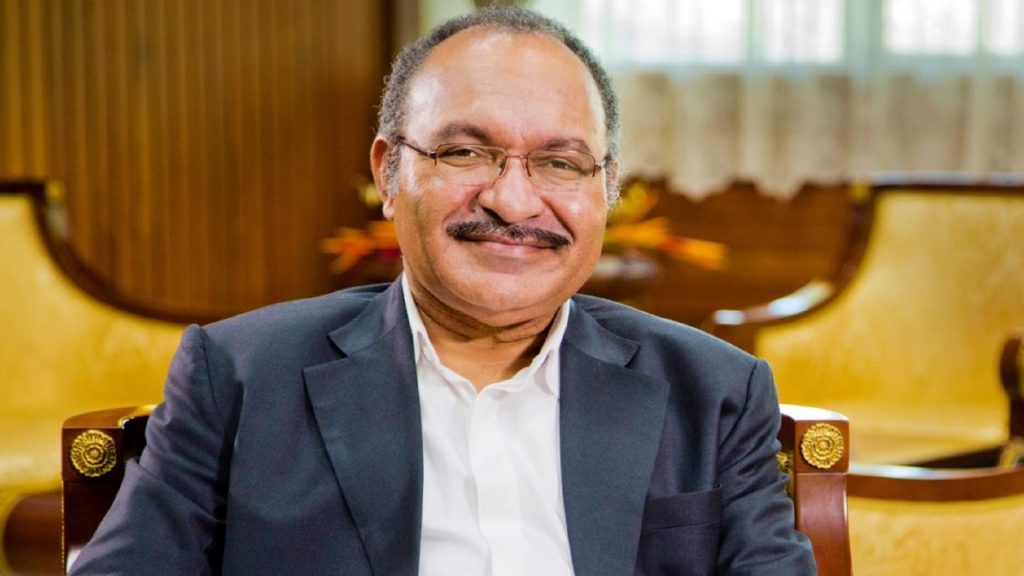
The Prime Minister Peter O’Neill has criticised external commentators for ‘bias’ when assessing the PNG economy. Speaking at the 34th Australia Papua New Guinea Business Forum in Brisbane, he expressed optimism about the proposed Papua LNG project but said the economy has to be diversified to avoid boom and bust cycles.


O’Neill said the economic effect of the earthquake has been ‘much less than we expected’, noting that the ratings agency Moody’s had not been accurate in its assessment of the likely impact.
‘Our people are very resilient. We are recovering.
‘Economic output dipped slightly in the first quarter of this year due to the temporary shutdown of some projects in the area but it is returning to normalcy.’
O’Neill said the worst affected area is the Moran oil field in the Southern Highlands, where it will take ‘some time’ before production resumes.
He acknowledged that the reconstruction effort ‘still remains a challenge for a small economy like Papua New Guinea’.
Resilience
O’Neill said the economy has proven resilient during his tenure. ‘We have seen this time and time again and in particular in the last seven years we have been in government our economy has been going through the most challenging times.
‘We will not put an extra burden on the business community.’
‘The serious downturn in global commodity prices, the crippling effect of the eight month-long drought, as well as the recent earthquakes. But we have responded in a measured and very responsible way. We have maintained positive economic growth.’
O’Neill added that in the last 16 years there has been little change in the way PNG conducts business.
‘We will not put an extra burden on the business community. Changes (to tax rates or regulations) have only been cosmetic.
Reports
O’Neill said a report by Standard & Poors had made errors and did not appear to believe government estimates or that the investments would benefit the people. ‘Outsiders have a very biased view.’
O’Neill was especially critical of a report by Jubilee Australia that claimed that on ‘almost every measure of economic welfare in 2016, PNG would have been better off without the PNG LNG project.’
‘Those kind of assessments are just utter nonsense. Our GDP grew to 8 per cent per annum during the construction phase of the PNG LNG.
‘Nobody expected the prices to collapse to US$27 a barrel.’
‘It created jobs for our people and Papua New Guinea’s economy continues to grow.’
O’Neill said initial estimates of the impact of the PNG LNG were done when the prices were US$110 per barrel.
‘Nobody expected the prices to collapse to US$27 a barrel. Nobody expects the project to make money at those kind of prices. You would be giving away LNG for free.’
Papua LNG
O’Neill said he met the Chairman and CEO of Total, Patrick Pouyanné, in Europe and gave an upbeat assessment of the likely future of the Papua LNG project.
‘We must broaden our economic base.’
‘From the discussions that I have had with him, he is very positive that he will make Front End Engineering and Design [FEED] announcements before the end of the year.
‘We learned a lot in the first LNG project in 2009 and we are going to appoint a government negotiation team in the next few weeks so they can start developing a new gas agreement for Papua LNG.’
O’Neill said that there is an over-reliance on resources, however. ‘We must broaden our economic base.
‘We cannot continue to depend on the resource sector to drive our economic growth. We have to avoid boom and bust cycles.’
O’Neill said the government is looking to stimulate investment in agriculture and tourism. ‘Our people were the first farmers in human history. It is where we belong.’
The government has targeted four areas for infrastructure development: Port Moresby, Lae, Mt Hagen and Kokopo.
O’Neill said the government plans to establish a regional tourism hub in Kokopo ‘with the right incentives.’
‘There is huge potential—our heritage, our culture, our landscape.’
He said there will be an upgraded four-lane highway to Kokopo and improvements in Mount Hagen airport facilities. ‘These are targeted investments that we are doing.’


